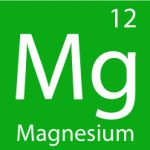 If you have found this page then you are among the millions of people who suffer migraine headaches and you are fed up with them. You have come to the right place. There is a link between magnesium and migraines and as people are gradually learning about the many benefits of magnesium, it appears that the reduction of migraines and headaches is a welcome side effect.
If you have found this page then you are among the millions of people who suffer migraine headaches and you are fed up with them. You have come to the right place. There is a link between magnesium and migraines and as people are gradually learning about the many benefits of magnesium, it appears that the reduction of migraines and headaches is a welcome side effect.
Continue reading to learn more about the causes of migraines and the effect of magnesium and migraines on each other.
Migraines
Dictionary.com defines migraine as a severe throbbing headache, usually confined to one side of the head and often associated with nausea. The pain can be aggravated by movement and associated with photophobia (light sensitivity), or phonophobia (noise sensitivity). The headache can last anywhere between 4 and 72 hours.
Anyone who has migraines knows how debilitating and distressing they can be.
Globally, around 15% of all people suffer from migraines. They seem to be more common in women, typically begin during puberty and may worsen as one ages, peaking around menopause due to the fact that hormonal fluctuations are thought to be one of the underlying causes of migraines. (source: Wikipedia)
Unfortunately, migraines cannot be cured. They are a chronic health condition which can only be managed. There has been, in recent years a change in the way consumers want to manage their headache condition using natural preventative means rather than pharmacological.
As such, the treatment for migraines has evolved and things such as vitamin and mineral supplementation, diet and lifestyle changes are often necessary in the treatment plan. Going to sleep at the same time each day, exercising regularly, avoiding triggers and eating on time are well recognised ways to reduce the severity and occurrence of migraines. Add to this a balanced and nutritious diet including plenty of foods that are rich in magnesium such as whole grains, green leafy vegetables and nuts.
Here is a full list of magnesium rich foods.
Magnesium and Migraines
This is where the relationship between magnesium and migraines becomes more clear.
Headaches and migraines are a common symptom of magnesium deficiency. Stress, anxiety, high blood pressure and sleep disturbances are also symptoms of magnesium deficiency while at the same time being risk factors for migraines and headaches.
Read more: What is Magnesium Deficiency? and Symptoms of Magnesium Deficiency
While 75% of Americans are at high risk for magnesium deficiency, studies have shown that migraine sufferers have low brain magnesium during attacks and are most likely suffering from overall magnesium deficiency (¹).
- Magnesium reduces migraines by decreasing the amount of the hormone cortisol and also promoting the release of serotonin thereby balancing the amount of ‘feel bad’ hormones with ‘feel good’ hormones. Cortisol is known as the stress hormone and has an effect on the severity of headaches.
- Magnesium is instrumental in facilitating smooth neurotransmission thereby reducing glitches in nerve impulses which would otherwise cause pain and headache (²).

- Magnesium also balances the muscle contraction action of calcium by relaxing the muscles. This means less tension affecting the shoulders and neck which may otherwise lead to headache.
- Sufficient magnesium is also able to result in the relaxation and widening of the blood vessels – vasodilation. This makes it easier for the heart to pump blood around the body thereby reducing blood pressure. Hypertension or high blood pressure is another cause of headache and migraines.
- Magnesium deficiency causes sleep disturbances so magnesium is vital in gaining a deep and beneficial night’s sleep which, in turn reduces causative factors of migraine.
Read more: Magnesium and Sleep
Why You Need More Magnesium
Even with a diet high in magnesium rich foods, it is very difficult to get the recommended daily amount of magnesium from our diet alone. This amount of 320mg for women and 420mg for men is also influenced by a number of risk factors which further deplete our body’s magnesium stores and increase our need (source: NIH).
Because magnesium is not produced within the body at all, it needs to be consumed.
Risk factors which deplete magnesium:
- High dietary intake of carbonated beverages, alcohol, caffeine and refined sugars
- Medication especially antihypertensives, hormone therapy including oral contraceptives, some antibiotics, diuretics, ACE inhibitors and more
- Advanced age
- Diabetes
- Stress – physical or mental
- Use of calcium supplements
- High blood pressure
- High impact exercise
- Migraines
Some of these risk factors have a real cyclic cause and effect mechanism with magnesium for example: High blood pressure, which may be caused by magnesium deficiency in the first place, further causes a magnesium deficiency to worsen. Then if you are prescribed an antihypertensive to control the high blood pressure, this also depletes your bodily stores of magnesium which will actually have the effect of further worsening the magnesium deficiency and increasing the blood pressure.
Low magnesium > high blood pressure > lower magnesium > higher blood pressure > antihypertensive medications > even lower magnesium > even higher blood pressure!
The same may be said about MIGRAINES:
Low magnesium > migraine > lower magnesium > more migraines
Magnesium Supplements
Read more: Best Magnesium Supplements and Most Convenient Magnesium Supplements
Magnesium supplements are available in a wide range of options and it can often be complicated to find the best one.
Firstly you have to find one of the better forms of magnesium which are renowned for their high bioavailability. This means that you are able to absorb it at a high rate. Some of the highest ones include:
And avoid supplements that contain:
Then you are able to select which mode of delivery is right for you:
- Oral tablets, capsules, powders, liquids
- Magnesium Oil transdermal sprays, lotions or patches
- Epsom Salts
With the strong relationship between magnesium and migraines, and the effect that one has on the other, the need for magnesium supplements is dire.
In most cases, by increasing your overall intake of magnesium via supplementation and in conjunction with diet, the occurrence and severity of migraines and headaches will be reduced.
Magnesium and migraines are inexorably linked.
If you are under 18, pregnant or lactating, have chronic disease or are on any medications, please consult your doctor prior to commencing supplement therapy.
DISCLAIMER The author of this article is not a doctor and the medical/dietary advice that is provided herein is not to replace users of the sites current medical situation or advice that may have been given by their GP or legal consultant. Whatismagnesiumdeficiency.com is here solely for support as an optional alternative. In no way does the information contained withinwww.whatismagnesiumdeficiency.com advise anyone to use this knowledge as a replacement for any medical condition.
Click here for more details on our disclaimer policy.
References:
-
Ramadan NM, Halvorson H, Vande-Linde A. Low brain magnesium in migraine. Headache. 1989;29:590–593.
-
Mauskop A, Altura BM. Role of magnesium in the pathogenesis and treatment of migraine. Clin Neurosci. 1998; 5:24–27.



Permalink //
It’s quite surprising all the things that can deplete or reduce your bodies magnesium. I totally agree that regardless of what we are eating that we most likely do not have enough magnesium on a daily basis.
I’ll try some supplements for myself as well as pass on the information about the correlation between migraines and low levels of magnesium to my mother who does suffer from having migraines.
Permalink //
Hi there Travis and thanks for commenting.
I hope that the information contained in this article can help your mother.
Best of health to you and yours,
Kristine G
Permalink //
Great article, I recently became aware of the important role that Magnesium plays in the treatment of Migraine headaches. You stated that Migraines cannot be cured, I did not know that I had always assumed that there was a cure for Migraines. I guess the only way to effectively deal with it is through diet and lifestyle changes, I learnt a few new things here.
Permalink //
Hi there and thank you for your comments.
I am glad to have been able to teach you a few new things!
Though there are many treatment options for migraines, there is no definitive cure.
Best of health, Kristine G
Permalink //
This is a great article. My son suffers from chronic migraines and this is something I will have him try. I am not big on pills the doctor prescribe and neither is my son. Natural is usually beneficial and makes the most sense to go with first. Magnesium is crucial to nerve activity in the brain and since he had his level 4 concussion in football years ago he battles them weekly. Thank you for helping me understand the differences in the types of magnesium available.
Permalink //
You are very welcome Ted.
I hope that magnesium can relieve some of your son’s suffering.
Best wishes, Kristine G
Permalink //
Thanks for an informative article – I never knew there was such a link between migraines and low magnesium levels. I was never quite sure which foods magnesium is in so it was useful to read your list.
Would you recommend taking supplements only under special circumstances? Is there any harm in taking them even if you have no symptoms of low magnesium levels, ie. can you have too much magnesium?
Permalink //
Hi Louise,
Excess magnesium is simply removed in your urine. As we are going to find it increasingly difficult to gain enough magnesium from our everyday diets, it is vital to add supplementary magnesium. If you try it, you should notice an improvement in your overall wellbeing even though you didn’t realise you were lacking.
Best wishes, Kristine
Permalink //
Our soil is not getting enough magnesium, so this is one area where we have to get more creative. I think we should sprout and ferment grains, nuts and seeds plus seek to get plenty of sea vegetables in our diet. Bone broth may help too. For some reason magnesium did not reduce my migraines, but I rarely get them anymore and if I do they are really brief. I am more of a fan of magnesium chloride oils, though I have read mixed reviews on their efficacy. Anyway magnesium deficiency is a problem for all of us even without migraines.